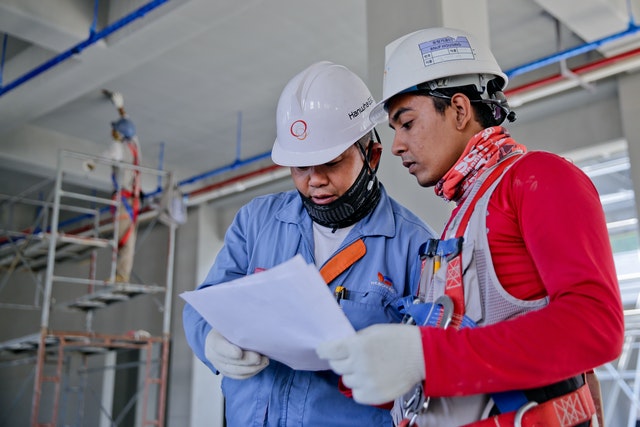
The reality of transnationalism has many facets.
Transnational networks support the development of – nation states in Eastern Europe, irrigate North and West Africa with traders and goods, fund orphanages in Punjab, Mali, Vietnam, and Morocco, provide social spaces for Korean flight attendants in Dubai, connect Veracruz workers with New York state farmers and Chinese spouses with Korean farmers, introduce Brazilian soap operas on Angolese TV channels, and many others.
Much has been said about the embedding of such social formations into the wider context of neoliberal globalization, the role played by modern technologies, and the connection with traditional integration models of immigrants. According to transnationalism, instead of assimilating or upholding a single traditional culture, so-called “transmigrants” establish multiple simultaneous identities, allegiances, and relationships (social, economic, familial, and religious) that bind them to both their home country and their host country.
Defining Transnationalism
It is an economic political and cultural process that extend beyond the boundaries of nation states. The concept of transnationalism implies a loss of control over a nation-borders, state’s inhabitants, and territory. In response to global economic development, increased immigration to developed countries has resulted in multicultural societies in which immigrants are more likely to maintain contact with their culture of origin and less likely to assimilate. As a result, allegiance to a culture or religion may compete equally with loyalty to the state.
Diaspora and transnationalism are important concepts in both political and policy debates, and academic research – diaspora even more so than transnationalism.
Aspects of transnationalism in diaspora
The current approach bridges the gap between migration studies that focus on determinants and systems and post-migration studies that focus on integration, diaspora, and transnational processes. It emphasizes the significance of the initial conditions that led to emigration. Each type of migration produces one or more distinct types of social institutions. We’ve seen the example of hometown organizations, which are the result of rural labor migration. Similarly, political exile frequently gives rise to refugee organizations. High-skilled labor migrants form professional organizations, whereas transnational families appear to play an important role for female migrants.
Concepts of diaspora and transnationalism
Over the last few decades, the concepts of diaspora and transnationalism have emerged as important data analysis lenses for examining the consequences of international migration and the shifting of state borders across populations. The study has concentrated on the evolution and reproduction of transnational social formations, as well as the specific macro-societal contexts in which these cross-border social formations have operated, such as ‘globalization’ and ‘multiculturalism.’
However, both terms refer to cross-border processes, and diaspora has often been used to denote religious or national groups living outside a (envisioned) civilization, whereas transnationalism is often used both more narrowly – to refer to migrants’ durable ties across countries – and more broadly – to capture not only communities.
The nature of the relationship
Diaspora and transnationalism are important concepts in both political and policy debates and academic research – diaspora even more so than transnationalism. Diaspora has become a politicised notion while transnational approaches have not yet found entry into public debates to the same degree. While diaspora is a very old concept, transnationalism is relatively new. Not only in public debates but also in academic analysis; the terms have fuzzy boundaries and often overlap. This immediately raises the question of why we should be interested in studying these concepts. One of the major issues with diaspora is that historians have tended to use it as a rather amorphous label that has gradually superseded traditional socioeconomic categories like “emigration” and “migration.” Furthermore, the term is used but rarely defined. Similarly, diaspora is a made-up term that lacks the precision of more traditional ways of describing for example the processes of scattering and formation of Irish communities around the world. The Internet, according to trans-nationalist theorists, is a site for new forms of communication and community, and Internet discourse among diaspora professionals and academics embodies a creolized discourse produced by a distinct type, the Cybernet. Despite the fact that there is a growing body of literature on transnationalism and diaspora communities, many studies focus on cultural identities and ignore the importance of exiles’ political commitments.
Conclusion
Diasporas are portrayed in EU documents as networks of immigrants with a variety of legal ties to the country of origin. In contrast, the terminology used in UN documents emphasizes “transnational communities” as the primary players in development policy. However, strangely enough, UN documents refer to individuals (as an unconnected group) rather than collectives when discussing transnational communities. In the EU, diasporas are viewed as the proverbial “seeds in the wind,” contributing to the growth of their home countries without having to deal with the trauma of violent dispersal. Numerous studies that take a transnational or diaspora approach unmistakably employ a national lens. The focus is then on immigrant and diaspora communities that influence host states’ stances and policies regarding domestic political conflicts. This method is based on the idea that national states serve as middlemen between different political factions in the “home country” and diaspora or transnational communities.
Feature by: Eric Muhia
Author Image Attribution: Eric Muhia

RELATED STORIES





